Dealing with raccoon intrusions on your property can be frustrating and potentially dangerous. These intelligent and adaptable creatures can cause significant damage to gardens, homes, and property while potentially exposing you to health risks. This comprehensive guide explores the most effective raccoon repellent and deterrent options available in 2025, focusing on humane, environmentally friendly solutions that actually work.
Quick Picks: Best Raccoon Repellents
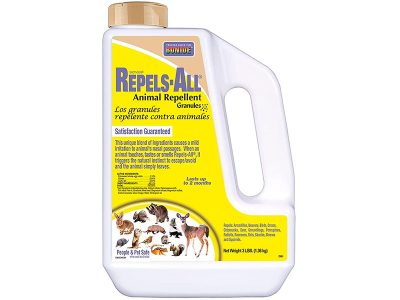
Editor’s Choice

People’s Choice
- Types of Raccoon Repellents: Understanding Your Options
- Top 5 Best Raccoon Repellents and Deterrents Reviewed
- DIY Natural Raccoon Repellent Solutions
- Prevention: The Best Form of Raccoon Control
- Understanding Raccoon Behavior for Better Control
- When to Call a Professional
- Frequently Asked Questions
- Conclusion: Creating a Comprehensive Raccoon Management Strategy
Types of Raccoon Repellents: Understanding Your Options
Raccoon repellents come in several forms, each with specific applications and effectiveness levels. Before choosing a solution, it’s important to understand the different types available and how they work to deter these persistent pests.
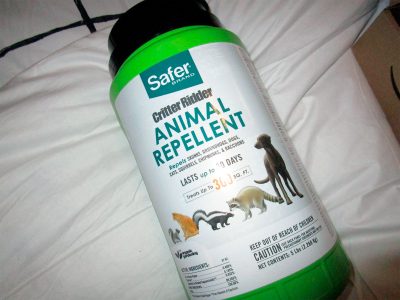
Granular Repellents
- Create barriers around specific areas
- Typically contain natural deterrents
- Last 30-60 days depending on weather
- Work through scent and taste aversion
- Effective for gardens, flowerbeds, property perimeters
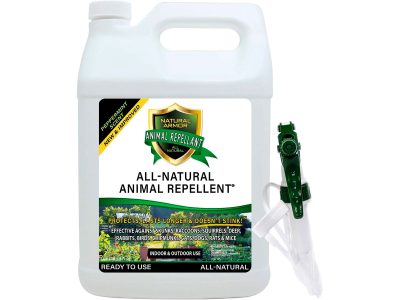
Liquid Spray Repellents
- Easy application on various surfaces
- Often contain essential oils
- May need frequent reapplication
- Can target specific problem areas
- Some formulas are waterproof for extended protection
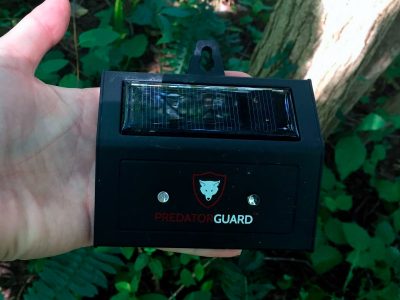
Electronic Deterrents
- Uses motion, light, sound, or water to frighten raccoons
- No chemicals or repellent substances
- Often solar-powered for continuous operation
- Covers larger areas than chemical repellents
- Most humane and long-lasting solution
Top 5 Best Raccoon Repellents and Deterrents Reviewed
After extensive testing and research, we’ve identified the most effective raccoon repellents on the market today. These solutions have proven their effectiveness in real-world applications and represent the best options for humane raccoon control.
Natural Ingredient Granular Repellent
Editor's ChoiceHow Does It Work
How to Use
- Sprinkle granules evenly around the perimeter of areas you want to protect
- Apply at a rate of 1 lb per 1,000 square feet for optimal coverage
- Reapply after heavy rain or every 30-60 days for continuous protection
- For enhanced effectiveness, combine with other deterrent methods like motion-activated devices
- 100% natural and biodegradable ingredients
- Safe for use around plants, pets, and wildlife
- Long-lasting protection up to 60 days
- Effective against multiple pest animals besides raccoons
- Easy application with no mixing required
- Strong odor may be noticeable to humans initially
- Requires reapplication after heavy rainfall
- May not deter extremely persistent raccoons
For maximum effectiveness, apply granular repellents after sunset when raccoons are not active, allowing the scent to fully establish before their nighttime foraging begins. Create a protective barrier around trash cans, gardens, and potential entry points to your home.
Hot Pepper-Based Repellent Granules
All-Natural FormulaHow Does It Work
How to Use
- Apply around gardens, flowerbeds, trash cans, and other problem areas
- Use 1-2 pounds per 300 square feet of area to be protected
- Create a continuous 3-4 inch wide perimeter barrier around areas needing protection
- Reapply monthly or after heavy rain for continuous protection
- Can be used year-round in all temperatures
- OMRI listed for organic gardening
- No harm to animals - simply deters them
- Rain-resistant formula provides extended protection
- Effective against multiple pest animals
- No unpleasant odor for humans
- Requires regular reapplication for maximum effectiveness
- May irritate human skin - wear gloves during application
- Not 100% effective against particularly determined raccoons
When applying hot pepper-based repellents, always wear gloves and avoid touching your face or eyes. The same compounds that irritate raccoons can also cause discomfort to humans if they come in direct contact with sensitive areas.
Essential Oil Spray Repellent
Long-Lasting ProtectionHow Does It Work
How to Use
- Spray directly on surfaces where raccoons are active
- Apply to perimeters of trash areas, gardens, and potential entry points
- For outdoor use, spray on the ground, plants, and structures
- Indoors, apply to attics, crawlspaces, and other problem areas
- Reapply every 30-90 days or after heavy rain
- 100% natural formula with no harsh chemicals
- Pleasant scent for humans, repulsive to raccoons
- Waterproof formula for extended outdoor use
- Covers up to 1,000 square feet per bottle
- Safe for use around children and pets when dry
- Strong mint smell may be initially intense for humans
- May require more frequent application in high-traffic areas
- Not effective for all raccoon populations
Motion-Activated Sprinkler Deterrent
People's ChoiceHow Does It Work
How to Use
- Install in areas with raccoon activity such as gardens, lawns, or near trash bins
- Connect to a standard garden hose and insert 4 AA batteries
- Adjust sensitivity, spray duration, and coverage angle as needed
- Position strategically to cover entry points or problem areas
- Can be used day or night with intelligent day/night detection modes
- Chemical-free and 100% humane deterrent method
- Protects up to 1,600 square feet with a single device
- Water-conserving design uses only 2-3 cups per activation
- Multiple settings for customized protection
- Deters raccoons without harming them
- Requires water connection and battery power
- May not be practical during freezing temperatures
- Can be triggered by non-target movement like falling leaves
For maximum effectiveness with motion-activated sprinklers, periodically relocate the units around your property. This prevents raccoons from learning the exact coverage pattern and finding ways to bypass the protected zones.
Solar-Powered Predator Light Deterrent
Energy EfficientHow Does It Work
How to Use
- Mount on posts, trees, or structures at raccoon eye level (about 2-3 feet high)
- Position facing the area you want to protect
- Ensure the solar panel receives adequate sunlight during the day
- For best results, reposition occasionally to prevent habituation
- Use multiple units for larger properties or severe infestations
- 100% solar powered - no batteries or electricity needed
- Weatherproof design for year-round outdoor use
- Automatic operation with light sensor
- Silent operation won't disturb neighbors
- Effective visibility up to half a mile
- May be less effective on raccoons already accustomed to human presence
- Requires sufficient daily sunlight to maintain charge
- Some raccoons may eventually become desensitized
DIY Natural Raccoon Repellent Solutions
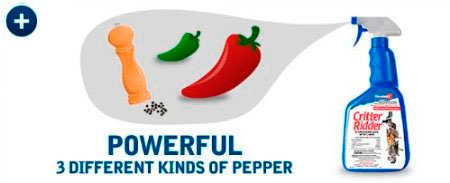
If you prefer homemade solutions or need immediate relief while waiting for commercial products to arrive, these DIY raccoon repellents use common household ingredients to create effective deterrents:
Cayenne Pepper Spray
Combine one small canister of cayenne pepper and one bottle of hot sauce in a gallon of water. Spray liberally around gardens, trash areas, and entry points. Reapply after rainfall.
Ammonia Solution
Soak rags in ammonia and place them in plastic containers with holes punched in the lids. Position near raccoon entry points or frequented areas. Replace every 2-3 days as the scent dissipates.
Citrus Repellent
Boil citrus peels (lemon, orange, grapefruit) in water for 15-20 minutes, then strain and spray the solution around targeted areas. Raccoons dislike the citrus scent and will avoid treated areas.
While DIY solutions can be effective for minor raccoon problems, persistent or severe infestations may require commercial-grade repellents or professional intervention. Homemade repellents typically require more frequent application to maintain effectiveness.
Prevention: The Best Form of Raccoon Control
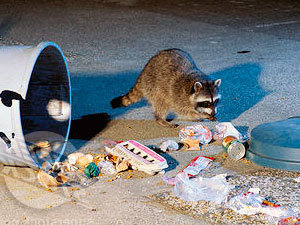
The most effective raccoon management strategy combines repellents with preventative measures that make your property less attractive to these opportunistic creatures. Follow these expert recommendations to create a raccoon-resistant environment:
Combine these preventative measures with appropriate repellents for a comprehensive raccoon management strategy that addresses both current problems and prevents future invasions.
For enhanced protection of garbage bins, consider using specialized trash bags infused with mint-scented repellent. These bags combine physical containment with olfactory deterrents to create a dual-layer defense against raccoon intrusions.
Understanding Raccoon Behavior for Better Control
Effective raccoon management requires understanding these animals’ habits, preferences, and behaviors. This knowledge allows you to target your repellent strategy more effectively:
| Raccoon Trait | Control Implications | Recommended Approach |
|---|---|---|
| Nocturnal activity | Most active after sunset and before dawn | Focus deterrents on nighttime protection; use motion-activated devices |
| Excellent sense of smell | Can detect food sources from great distances | Use strong-scented repellents; eliminate food odors |
| Highly intelligent | Can learn to overcome simple barriers | Use multiple deterrent types; rotate methods periodically |
| Dexterous paws | Can open containers, doors, and latches | Use secure, raccoon-proof containment for trash and food |
| Seasonal breeding | Females with young may be more persistent | Use stronger deterrents during spring/summer breeding season |
When to Call a Professional
While repellents can effectively manage most raccoon problems, certain situations warrant professional intervention for safe and humane resolution:
Consider contacting a wildlife control professional if you notice raccoons that appear sick or unusually aggressive, raccoons that have taken up residence inside your home, evidence of raccoon families with young, or if you’ve tried multiple repellent methods without success. Professional wildlife managers have the training and equipment to safely resolve complex raccoon situations.
Professional wildlife control services can provide comprehensive solutions including humane trapping and relocation, exclusion services to prevent re-entry, damage repair, and sanitization of contaminated areas. While this option involves higher costs, it often provides the most complete and permanent resolution to serious raccoon problems.
Frequently Asked Questions
What smells do raccoons hate the most?
Raccoons have a highly developed sense of smell and are particularly averse to certain odors. The most effective scent deterrents include predator urine (wolf, coyote, fox), ammonia, garlic, hot peppers (capsaicin), and peppermint oil. These smells either signal danger or cause mild irritation to a raccoon’s sensitive nose, encouraging them to avoid the area.
For maximum effectiveness, use multiple scents and rotate them periodically to prevent raccoons from becoming accustomed to any single repellent.
Are electronic repellents better than chemical options?
Electronic repellents generally offer several advantages over chemical alternatives. They typically provide longer-lasting protection without requiring frequent reapplication, work in all weather conditions, cover larger areas, and don’t involve introducing chemicals into the environment. Motion-activated sprinklers and predator lights are particularly effective because they create unpredictable stimuli that raccoons cannot easily become habituated to.
However, the best approach often combines both electronic and scent-based repellents for comprehensive protection against these adaptable animals.
Is it legal to repel raccoons from my property?
While it’s generally legal to use humane repellents to deter raccoons from your property, specific wildlife regulations vary by location. Most areas permit non-lethal deterrents that don’t cause physical harm to the animals. However, some municipalities may have restrictions on certain methods, particularly those involving trapping or relocation.
Before implementing any raccoon control strategy, check with your local wildlife agency or animal control department to ensure compliance with local regulations. This is especially important if you’re considering trapping or handling raccoons directly.
How long does it take for a repellent to work?
The timeline for seeing results from raccoon repellents varies based on several factors. In most cases, you should notice a reduction in raccoon activity within 3-7 days of consistent application. Electronic deterrents like motion-activated sprinklers often show faster results, sometimes immediately discouraging raccoons from returning.
For persistent raccoon problems, expect to maintain your repellent strategy for 2-3 weeks before achieving lasting results. Raccoons that have established territories or dens may be more resistant to repellents and require more time and varied approaches to discourage completely.
What should I do if I have raccoons in my attic?
Raccoons in attics require special consideration, particularly during spring and early summer when females may be raising young. Never use repellents that might separate mother raccoons from their babies, as orphaned young will likely die and create additional problems.
For attic invasions, the recommended approach is to contact a professional wildlife removal service. They can safely remove the entire raccoon family, implement appropriate exclusion measures to prevent re-entry, and address any contamination or damage. If you must handle the situation yourself, use bright lights, noise, and mild repellents only after confirming no young are present.
Conclusion: Creating a Comprehensive Raccoon Management Strategy
Effectively managing raccoon problems requires a multi-faceted approach combining appropriate repellents with habitat modification and preventative measures. The best raccoon repellent strategy addresses both immediate concerns and long-term prevention to create lasting protection for your property.
For most homeowners, we recommend starting with a motion-activated sprinkler system as your primary deterrent, supplemented with granular repellents around specific high-value areas like gardens or entry points. Combine these active repellents with proper trash management and elimination of food sources for the most comprehensive protection against raccoon intrusions.
Remember that persistence and consistency are key to successful raccoon management. By understanding raccoon behavior, implementing appropriate repellents, and addressing the environmental factors that attract these animals to your property, you can create a raccoon-free environment using humane, environmentally responsible methods.
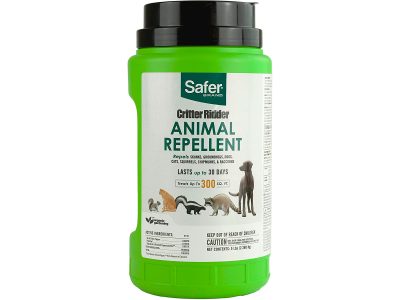
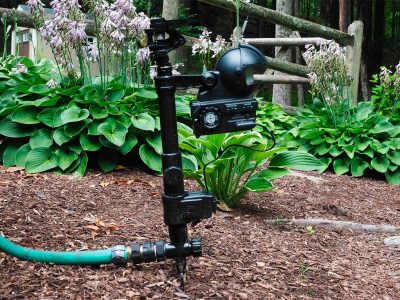
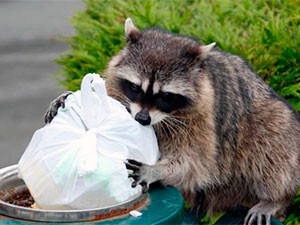
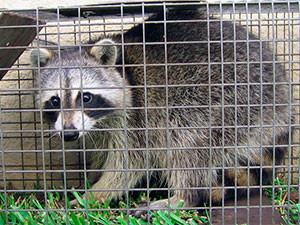
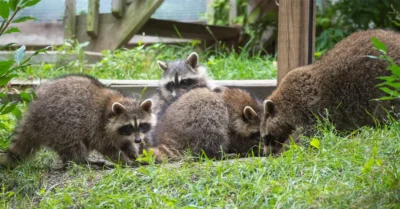

Hi I have rescued three feral cats and I too have a raccoon problem. What I am doing is making a shed with a cat door very high up so that only the cats can jump onto the ledge and climb into the shed. I hope this works! Has anyone else tried some thing similar?
Many of these comments read like they were written by people who can’t spell, can’t punctuate, run their sentences together like a four year old might do, and generally portray a community of illiterates. It’s annoying to know I’m sharing the planet with double-digits, even if they do care about animals.
Anyway, I’ve been fighting raccoons for years. They’ve destroyed part of the roof of my garage and tear up or contaminate everything they come across. Beautiful animals but they’re nothing but trouble. I’ve tried high pressure streams of water, flashing lights, and blocking access to places where they might den up but nothing seems to work except pepper spray – an expensive solution. It does work though. I’m in the process of learning to make my own for use in a three or five gallon garden sprayer. They really do hate bear spray and won’t come back for a long time once they get sprayed. They’re intelligent as hell and will remember . . . but there’s always a new crop that comes along.
So. Use the internet to learn how to make your own pepper spray, get a sprayer that will shoot a stream of liquid once you pump it up to high pressure. I’m trying to avoid buying more $50 cans of bear spray and this idea should be a lot cheaper and work just as well.
Just so all will know, raccoons do kill cats and occasionally will kill a small dog. My sister has a Chihuahua Jack Russell mix (about 17 lbs.) who was severely attacked by a raccoon and almost died. The bite wounds easily become infected because of the disease and bacteria the raccoons carry. Rabies is also a problem with raccoons and because they are plentiful on our farm we vaccinate barn cats, dogs and horses, everything for rabies. We have tried using the humane live traps which rarely worked for us, so we keep a .22 handy. If we see one now we shoot it.
I use thorn bushes around the cat food and leave a little opening for the cat I feed these racoons are a pain in the ass, but once they step on the thorn bushes they split, but came back try to remove bushes tonight I will use pepper outside of the bushes, I wish I could shoot them but I live in the city and will get turn in, but it sounds good to me.
One of the best solutions I have found although may take patience is POP ITS or snappers you may see around 4th of July. They hate them. Raccoons seem to be fairly punctual at my home. When seen just toss at them as many times you can and they will run. They will come back but after couple times they will not be back. Cheap solution and nothing gets hurt.
Is the pepper spray raccoon repellent safe for the birds?
Best way to ever get ride of peaty raccoons is sit outside with shot gun & wait till they arrive. Shoot them dead, than let the vultures have a great meal. This has been for over 10 years now, and you will not c any signs of useless Critters. I do have more vultures hanging around more than ever before for an expected meal.
This works & costs very little to do. If your squeamish & don’t agree to this method, than good luck with it.
I have pellet gun and once 2 separated from the gang and hid in the garage, so I made it sure they got their pellets straight in their heads, took more than one, then I put them into trash bags and bye bye.
My raccoons have come back into the attic,I played loud music and made a lot of noise,after awhile the mother and baby left,but now they’re come back how can I rid my house of these coons
I wanted to mention also, that even though I take the food dish inside at night, I leave the water dish so that the cats can at least get a drink at night, especially in the hot weather. The raccoons come up to the patio anyway and spill the water dish and make a mess while looking for food and have now started digging around in the potted plants, destroying them and spreading the potting soil around the patio. Ugh! Not having food around is not a deterrent to making them go away, as they seem always hopeful there will be food a different day. I think you’d have to give them a very unpleasant experience, one that associated your property with that so they would be reluctant to come back. If it wasn’t for the cats, there would be other options to try to drive them off but if you have pets animals then you don’t want to e spreading poisons or sprays that could affect them to. Our cats come around at various times of the day to get their meals but rarely do after dark so I thought that would be the best time to put out a baited dish attached to a zapper. Maybe attaching wires with alligator clips and hook it to a big battery? Only strong enough current/voltage to give the raccoons a strong zap but not kill them of course.
There is a group of feral cats that live in the woods behind our homes and me and the neighbor like to feed them. We both love cats and enjoy feeding them and some are friendly and allow petting but the raccoons are really becoming a nuisance with stealing the cats’ food every day. Our neighborhood is an elderly community and everyone is on a fixed income. The raccoons are costing money when they steal the cats’ food. They would come up at night an empty the dishes we’d left out for the cats so I would make sure the cats ate during the day, then started bringing in the dish of leftover kibble after dark. Immediately the raccoons began coming out of the woods during the day to steal the cats’ food and I would peep out the window and see the cats just move aside and allow the raccoons to take their food. Several of the cats lost weight from not eating or getting enough food and this angers me the raccoons are stealing their food. I used a metal dog dish to feed the cats and when I went out to chase away the raccoons they looked at me defiantly and picked up the whole dish and ran away with it! They spilled the food as they ran off but kept the dish and took it back to the woods with them. I never found it and replaced it with a heavy stoneware dish. The raccoons tried to steal that too but they can’t lift it 😛 So they just hurry to gobble all the food. They eat like dogs and the loud snuffling/munching noise they make lets me know they are out on the patio again. I bought an empty spray bottle at WalMart and set it to “stream” and filled it with water. When they came after the cats’ food I sprayed them with the water. They turned and gave me a nasty defiant look and merely retreated a few paces, waited some moments and repeatedly tried stealing the food again! I don’t want to resort to putting some poisoned food to get rid of them. They do like canned cat food and I’m sure that would work if it was put out when the cats weren’t around (and you kept watch from a distance to be certain that no cats or other animals went to the dish) but I’m reluctant to resort to killing them and would rather just scare them off. It might deter them for a time to cook some peppers in water and use that water to spray them but I had another idea that might work better if I could figure how to do it. I thought to buy another metal dog dish and clip electrical wires to it so that the raccoons would get a zap when they came up an grabbed the dish like they always do when they are eating out of it. This way they might associate that type of dish with a danger of getting an electrical zap. You could set up the dish after your pets are not around and it’s the time of night that the raccoons always come around, fill it with the type of food the raccoons love to steal, then watch from a distance to be sure that no other animals come near the baited dish. I think if you let the coons get zapped several nights in a row they will learn to associate that type of dish with getting an unpleasant zap so then you could keep them away from the dish that way. I wish I knew more about how to set up something like that. I’ll have to look into it and try it. or maybe you could try getting a cattle prod or something and poke/zap them when they come around. However they are smart so they would then just come around when they didn’t see you there.
Alisa, you are fortunate to have the luxury of being able to safely observe your feral cat colony and their eating habits. I fill in time to time filling remote feeding stations for feral and to be honest with you, we have admitted defeat as far as raccoons and other creatures scarfing down the food we intended for the feral cats. Our solution or compromise was setting up a feral feeding station using a large plastic storage bin with a snug cover. Cut an opening that would allow cats to safely pass through on one end on the bottom portion of the storage bin. Duct tape around the opening to cover any rough edges left by your cut. Depending on the time of year we may add hay or straw or even a fleece blanket as bedding.
Once you have placed the feeding station in its intended spot, remove the lid and we place a hefty bowl of dry food and a large water bowl inside and then replace the lid. Special occassions we do leave wet food, though not often. Before leaving we place a large piece of say plywood on top of the bin and then a cinder block or several bricks on top of the wood. Make sure the feeding station is wedged against a tree or into a field of grasses so it will not tip over. This method is not intended to deter the raccoons but they have to be fairly well behaved to navigate the opening into the feeding station and we leave enough dry food for three days and water. They are welcome to eat all they want but removal of the food or bowls from the bin is next to impossible for them. After some time they become aware this food source is always replenished and why ruin a good thing! That is our thinking anyway. I would love to set up a motion activated camera to really observe what happens after we are gone from the area. They will spray or scent the area but the next furbaby that comes by adds to the scent.
Apparently you have no class using such words to someone that loves animals. I used to feed a feral cat and its babies it kept the mice and rats from my house as I have allergies to cats I could not have indoor cats and they used to eat them after they caught them. Two problems solved and I enjoyed their company outside.
I was going to use mothballs but I looked on the internet and instead that it can harm or even killed cats and dogs and harm children so I don’t want to do that so the cayenne pepper and hot sauce an inventor who could take care of you of the problem for a little bit right no give me some kind of home remedy that I can try I don’t want to hurt any cats are my landlord’s dog thank you and get back to me as soon as possible.
I got three feral cats that I rescued. and I got to raccoons that come and eat your food at night. but the cats just sit there and look at them.how can I use cayenne pepper hot sauce and vinegar together and spray the area where they come in the fence that they climb on would that keep the raccoons away send me an gmail and let me know. thank you and have a blessed day.
I saw your post from last summer about your problem with raccoons and your feral cats. I too am having exact same problems. Any suggestions would be appreciated
I live in nyc and I too am experiencing the black eyed bandits also I’ve been using the critter ridder spray which cause them to leave…it’s made of three different peppers which the coons don’t like.
Well I have cats and I am looking for something that doesnt affect them but drives away the coons. I can just see using that pepper spray and having the cats lick their paws. Haha. So will it also drive away my cats?
That’s what I am trying to find. A way to detract raccoons but not hurt my cat
I live in a mobile home & have at least one racoon up into my floor insulation! I have cats that live inside! Can I possibly go underneath &poke a hole through the insulation with a spray wand & spray a repellent up into the open space to deter it or them?
I have some raccoons up in my house in the ceiling don’t know how many we put mothballs and they seemed gone but now they are back I have a dog and two kids what can I do to get rid of these critters.
Well I just had four raccoons in my house one about 2 1 /2 feet tall they were attacking my cat in the hallway by my bedroom. I guess they grow big here in Gibsons. Police arrive but I guess they exited the cat door.
Raccoons commonly do kill cats. That four entered your home to get your cat is reason enough to keep a .22 handy. Raccoons can also carry rabies and usually harbor raccoon roundworms. Those roundworms can cause ghastly illnessses or death in humans and their pets.
Hey, I live in Powell River B.C Canada in a suburban area lots of rich homes, exept mine! Lol! Na, but I live here with my mother who’s 65 years old so she can’t do much these days has a bad hip, so i’m the 1 who does all the harder work and dealin with these Raccoons! I bought a can of bear spray cause we have them around and Cougars aswell at times and I don’t want to hurt or get hurt by any of these creatures of course, but, the Raccoons r the main problem so if I have to I will spray 1, we also have 3 cats which i’m worried about too as i’very bin told they will kill or hurt them which at the moment i’m patrolling my yard lol with a bright flashlight and bear spray. So I really need a way to get rid of them cheaply and so on! I’ve read this article so i’ll try some things u’ve metioned but please email me back and give me more advice and tips and what to really do here and ex. I’m scared for my cats and my mother’s kinda in denial about them actually being here and the actual real scare there is for our cats especially aswell as our home and yard, oh, supposedly my mother told me when our cats were kittens the Raccoons were too they played together and they’ve been coming back every year but this year has and is the worst that i’ve even actually seen and noticed which oviestly isn’t good! I will do my best to deter them keep them from doing anything to our cats and home, like I said try some of these things metioned here and will be lookin forward to hearing back from you! Thanx alot! Ttys and i’m a fighter lol it’ll take more than 3 or 4 Raccoons to get me haha!!
I haven’t heard of raccoons killing cats before, here in the pembina valley we’ve even discovered a raccoon raising abandoned stray kittens with her own litter…. However, BC has an animal some ppl mistake for raccoons because of their familiar coon tails…. BC has Martins, they can and do kill cats. BC has a trap & destroy or relocate program through animal control….contact them.
An unpayed feral cat had 4 kittens in my yard all of them were killed by racoons. I didn’t see it happen but the aftermath had racoon written all over it as we went around the yard cleaning up. I have not seen them go after a full grown cat, though I believe that has more to do with their inability to catch a adult cat than their willingness to kill them.